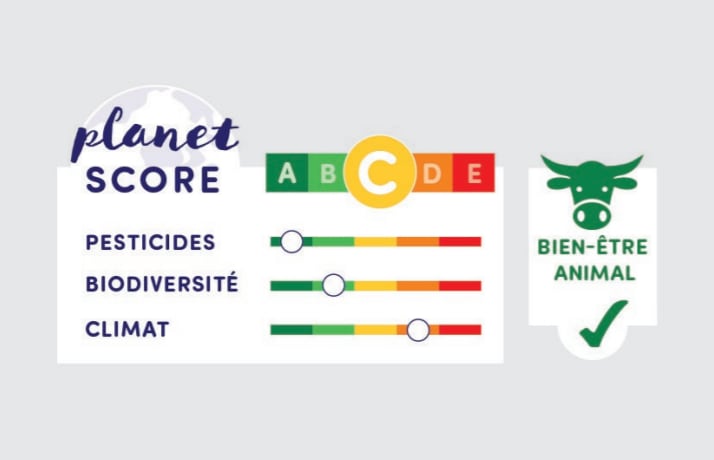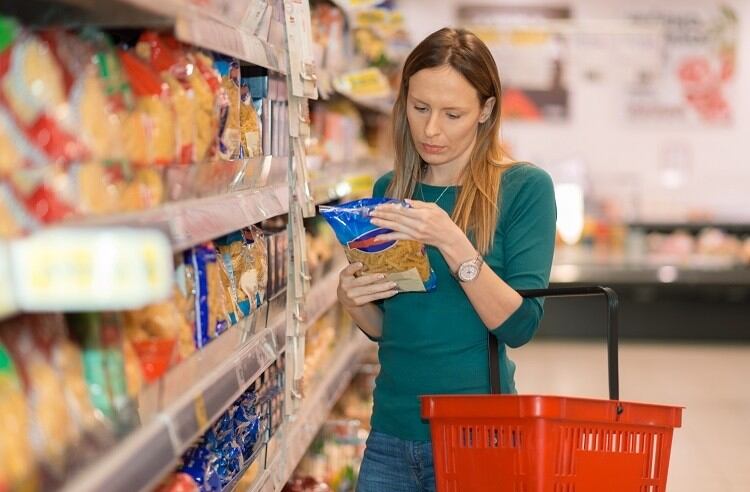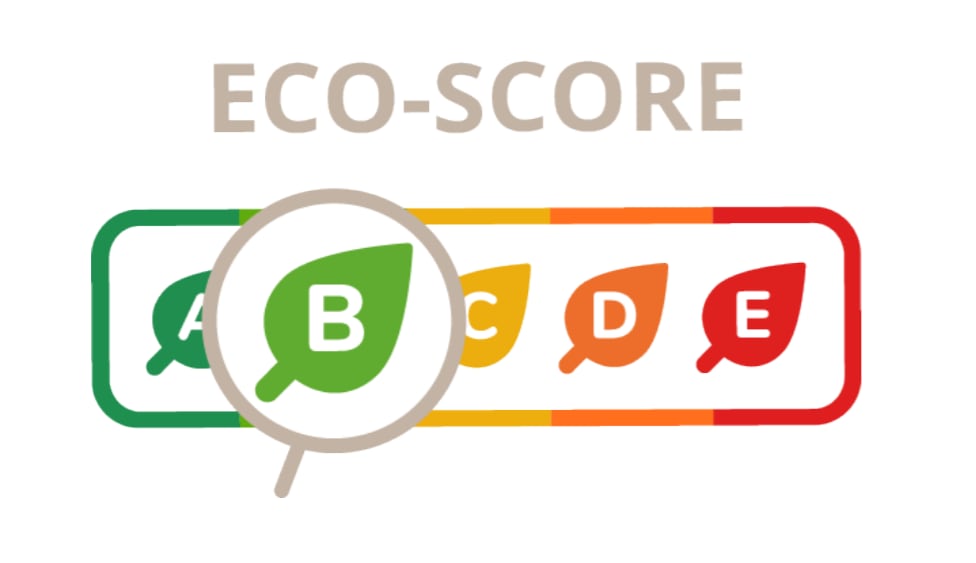As part of Europe’s commitment to achieve net-zero carbon emissions by 2050, the Commission is preparing to table a sustainable food labelling framework. The aim is to ‘empower consumers’ and help them ‘make sustainable food choices’.
France, however, is not waiting around. Over the last few months, the Eco-Score – a front-of-pack (FOP) food label designed to help consumers check the environmental impact of food at a glance – has observed increased uptake across Europe.
And now, another environmental labelling scheme has been developed. This time, with particular focus on pesticides, biodiversity, climate, and animal welfare.
Differentiating between, and within, food categories
Planet-Score is the brainchild of France’s Organic Food and Farming Institute (ITAB), research organisation Sayari, and consumer research-focused Very Good Future.
Responding to a call for projects launched last year from the Ecological Transition Agency (ADEME) and the Ministry of Ecology, Planet-Score aims to better inform consumers, at a glance, of the ecological footprint of food products.
Specifically, the scheme aims to differentiate environmental impacts between different categories of products, for example a meat product vs an apple, as well as within categories, for example between different varieties of apples and their differing production methods.
The scheme is based on life cycle assessment (LCA) methodology. LCA is a technique for assessing the environmental aspects associated with a product over its life cycle. From cradle to grave, LCA addresses the extraction of raw materials associated with the product, as well as its production and distribution of energy through its use, reuse, and final despot.
Planet-Score, like the Eco-Score, replies on category-specific LCA from ADEME’s Agribalyse project. ADEME has evaluated the environmental impact of at least 2,500 categories of products.
Addressing four key indicators
Where LCA testing lacks, however, according to Planet-Score’s developers, is addressing other elements associated with sustainability, notably: pesticides, climate, biodiversity and animal welfare. These, they say, are either covered minimally, poorly, or not at all, in LCA analyses.
Where Planet-Score sets itself apart, therefore, is incorporation of these elements. The labelling scheme addresses the use of pesticides, taking into account their impact on human and planetary health, as well as their presence in food.
Climate is another element integrated into Planet-Score, notably factoring in soil carbon stores and greenhouse gas emissions. Biodiversity is also accounted for, addressing impacts associated with agricultural practices, as well as the size of agricultural plots, and the presence of hedges etc.
And finally, Planet-Score incorporates animal welfare standards, because different animal rearing methods can impact the environment in different ways, noted the cohort.
The result is a composite format that presents these four indicators, as well as an aggregated score.
NGO support
ITAB, Sayari, and Very Good Future are convinced the new labelling will appeal to consumers, having conducted qualitative studies in both organic and conventional retail stores.
A quantitative study of 1,000 participants – representative of the French population – has also been undertaken, to ensure the labelling format responds to consumer expectations concerning transparency and key criteria information.
The cohort believes the label can help contribute to behavioural change amongst consumers, and is superior when compared to environmental labelling scheme displaying an environmental score only.
At least 16 NGOs have voiced their support of Planet-Score, including WWF, Générations Futures, and Compassion in World Farming (CIWF) France, as well as organic players such as the National Federation of Organic Agriculture and Synabio.




